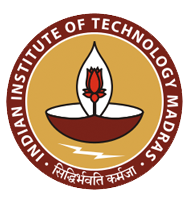“Unfortunately, there was no GDC when I began my startup journey,” says Professor V. Ramgopal Rao, Director, IIT Delhi. “I learnt to be an entrepreneur the hard way – through trial and error. What should have taken me a mere 2-3 years took twice the time to complete,” he says.
Prof. Rao was speaking at the online FINALE of I-NCUBATE Cohort 16 of GDC on 4th September 2021. I-NCUBATE is an 8-week long bootcamp conducted by GDC for early-stage startups emanating from university labs. The I-NCUBATE program is designed to build capabilities and develop an entrepreneurial mindset in the faculty and researchers who wish to commercialise their scientific research and take it to the market. Eight start-up teams comprising 30 entrepreneur leads and 10 faculty leads from 10 educational institutions, one corporate company, and one incubator participated in the program.
Speaking at the event, Prof. Rao narrated his own entrepreneurial journey while building NanoSniff – a deep-tech startup that is the world’s first microsensor-based explosives detector. He stressed on the need for commercialization of university research in India to boost indigenous inventions, as nobody else in the world can be motivated to solve India’s problems.
“India stands third in university research, after the US and China. Our research output has grown tremendously over the past several years. We have also become the best optimizers, producing the highest number of research papers per dollar spent,” he says.

“However, the translation of that knowledge into wealth is not happening. That is where we are lacking as a country. At some point, we need to start thinking beyond just publishing papers.” Prof. Rao then urged scholars to step out of libraries and classrooms to identify pertinent research problems.
“India has all the problems in the world. If you want to find a research problem, you just have to step out of your classroom… into the street. I pity students who go to the library to select a research problem. We should be going out, into the society.”
Prof. Rao says the research problems that he aims to address with his innovations were all picked from the society, and not from the library. “It helps when you can connect with people from various walks of life,” he says. Speaking about SoilSens, another innovation and startup in which he was involved, Prof. Rao says connecting with farmers helped his team build the device that aids in precision farming.
“In our current context, over 70% of research problems are identified from libraries. There is a need to change that. We need to encourage rural internships for engineers. We need to collaborate with humanities departments in engineering institutions in identifying pressing social problems that need technological interventions. Only then can we develop indigenous solutions to our local problems,” adds Prof. Rao.
Click here to watch the full video of Prof. Rao’s speech
